Masao Seki: Latest trend of CSR reporting in Japan
2022-12-19GoldenBee责任编辑0

Recently, the 15th International Conference on CSR Reporting in China has been held. The guests had in-depth discussions on the latest trend of global corporate social responsibility (CSR) report, the way of CSR communication, the value exploration of CSR report and other issues.
Masao Seki, Steering Committee Chairman of the Council for Better Corporate Citizenship (CBCC) shared the latest development of social responsibility disclosure in Japan from four points in this Conference.
The following are highlights of Masao's speech:
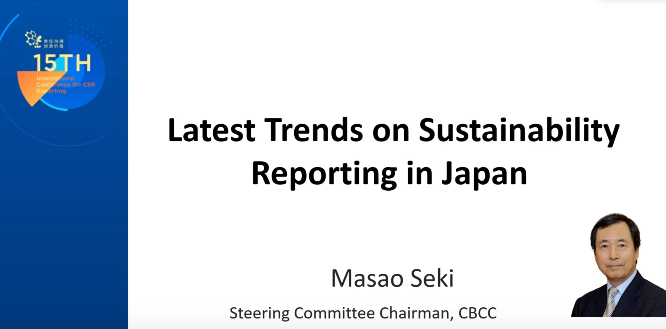
Hello everyone, I am very pleased to be part of this Conference. Today, from a business perspective, I would like to introduce some of the key trends in sustainability reporting in Japan. In this presentation, I would like to take up 4 points: integrated reporting, TCFD, human rights due diligence reporting, and impact assessment and disclosure, all of which are of importance and concern globally.
Integrated Reporting
The number of Japanese companies issuing integrated reports continues to increase, from 60% in 2019 to 78% in 2021. Listed companies have more relevant disclosure, and the percentage of companies that disclose materiality in integrated reports is also increasing. Although the progress has been made, I feel that there is still a lot of work to be done to improve the content of disclosure, make it a mature integrated report which helps companies engage in meaningful dialogue with investors.
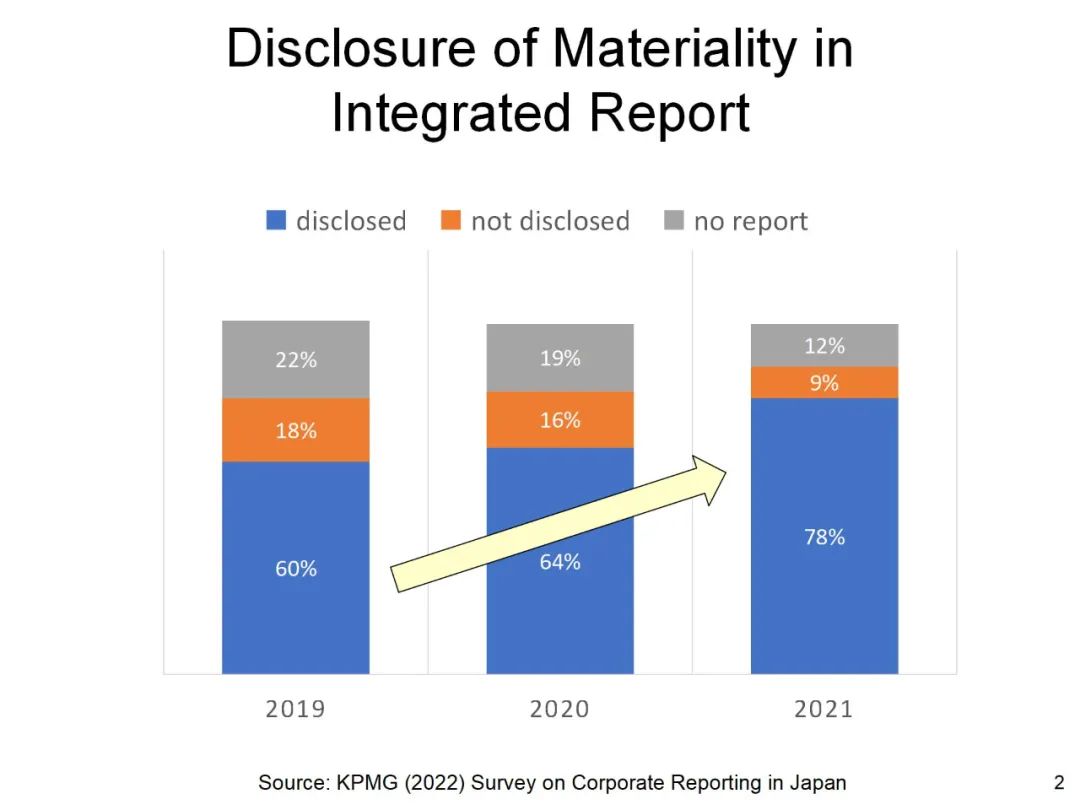
The release of such reports shows that these companies truly realize their social values and fulfill social responsibilities, not just focusing on economic profits and business growth. In fact, such a trend is consistent with global development. The integrated reports and the disclosure of major issues is gaining more global attention with new progress. It’s hoped that integrated reports which are truly helpful to the public and can bring some useful information will be released.
Climate Change
As of October, this year, Japan has 1,077 companies, with the largest number of companies in the world supporting the TCFD, or Task Force on Climate-related Financial Disclosures. These companies come from different economic fields and sectors, showing their great attention to the TCFD.
In fact, an increasing number of companies are disclosing governance, strategy, risk management, and metrics and targets in accordance with the TCFD framework due to the increasing strict regulation on climate by related organizations.
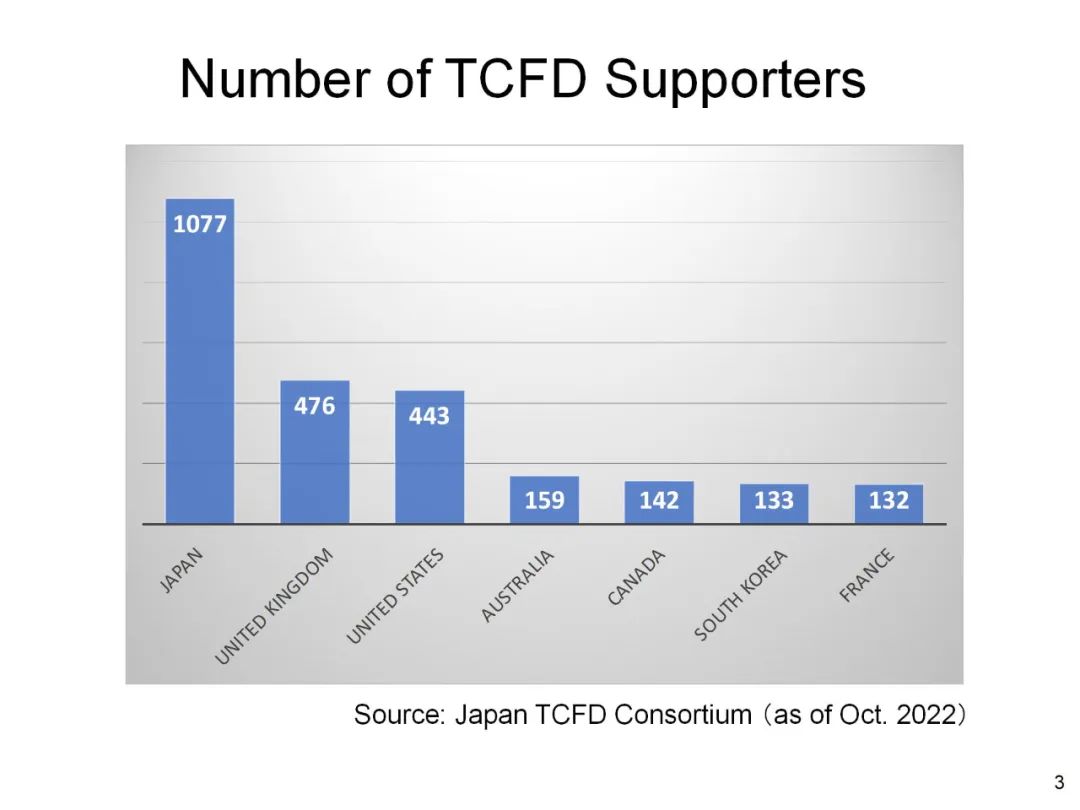
Investors are also highly interested in corporate financial disclosures related to climate, and companies are working to disclose them targeting the domestic and overseas institutional investors as important stakeholders. It can be said that such disclosure is no longer the disclosure of non-financial information, but the disclosure of financial information.
Human Rights Due Diligence
In Japan, we established the Charter of Corporate Behavior as a basic principle for responsible corporate behavior, which is about business and human rights. We hope that Japanese economic organizations, including enterprises, will formulate a charter of corporate behavior and abide by the basic principles and take actions.
As of 2020, only about 30% of companies were implementing human rights due diligence. In light of this situation, we provided companies with related guidance, placing special emphasis on raising awareness and promoting action among industry associations.
In October 2020, the Japanese government also established the National Action Plan on business and human rights, second in Asia after Thailand. Japanese companies, regardless of size or industry, should respect internationally recognized human rights and introduce human rights due diligence processes.
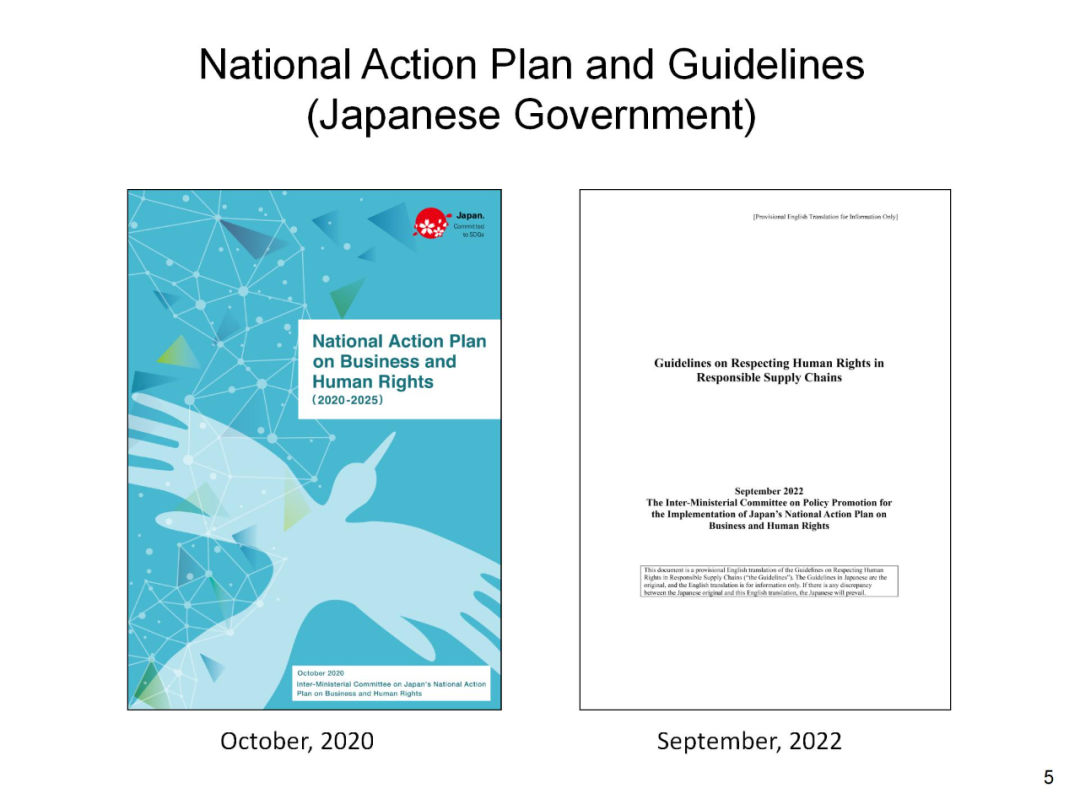
This September, Japanese government developed handbook and guidelines include information disclosure as an indispensable step in human rights due diligence. Human rights due diligence is a PDCA cycle to fulfill corporate responsibility to respect human rights, and fulfill accountability to stakeholders.
Future Challenges and Prospects in Reporting
In June last year, we prepared a report summarizing discussions on the measurement and evaluation of SDGs initiatives. Impact assessment and reporting are important in order to avoid criticism as an SDG wash and make them truly meaningful initiatives that create social value and improve corporate value as well. The report recommends that appropriate KPIs should be set for the SDGs targets, the results of impact assessments should be reported, and that this should be linked to improved access to investment. Among all, I believe that the most important thing is to understand the true purpose of impact assessment. The aim is to improve, better manage and deliver meaningful results in the efforts we make.
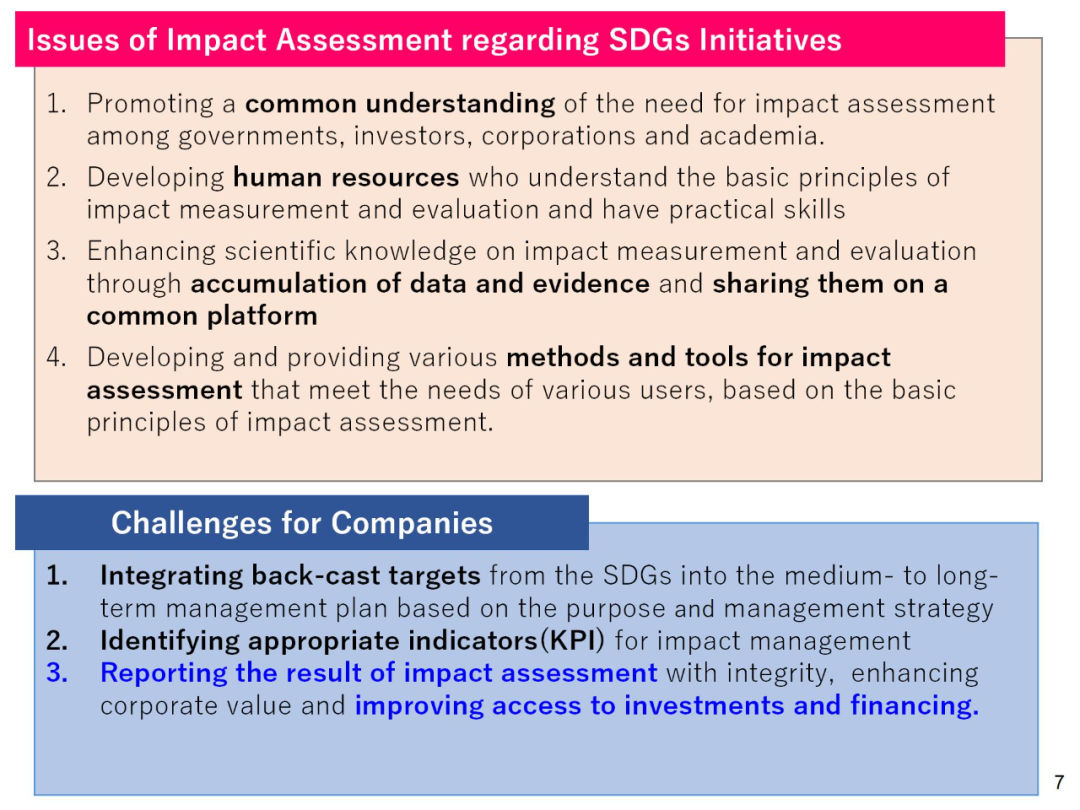
Last year, the WBCSD published its Vision 2050 recommendations, in which it summarized the challenges to be addressed for sustainable development in three simple words. They are Climate, Nature, People, and just as climate change is now a climate emergency, nature loss is in crisis, and widening inequality is reaching a level that cannot be ignored. Within our planetary boundaries, we must transform our economies and societies to achieve fair and inclusive growth and enable more than 9 billion people to live well by 2050. To that end, business should explore ways to disclose our strategies and integrated efforts to address the three themes of Climate, Nature and People.
In line with this mindset, in addition to the TCFD, the TNFD, or framework for financial disclosures related to nature is being developed and has already reached the beta-version stage. Beyond that, discussions have already begun on the TSFD, that is, the formulation of standards for financial information disclosure in terms of social aspects.
(Compiled from the speaker's speech, and the content was not reviewed by himself.)
Best Practices
- The 100-year brand — Air Liquide also has a sense of juvenile
- Beijing Public Transportation Corporation: Developing green transportation to build a harmonious and livable capital
- CGN: Building a modern factory in barren deserts and developing a new win-win cooperation model along “Belt and Road”
Upcoming Event

All the materials on the site “Source: XXX (not from this site)” have been reprinted from other media. They do not imply the agreement by the site.
All the materials with “Source: CSR-China Website” are the copyright of CSR-China Website. None of them may be used in any form or by any means without permission from CSR-China Website.
GoldenBee Official WeChat
Copyright © Csr-china.net All Right Reserved.
京ICP备19010813号










